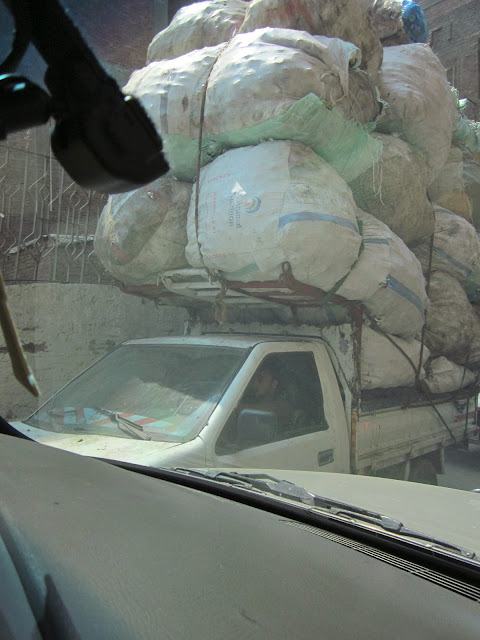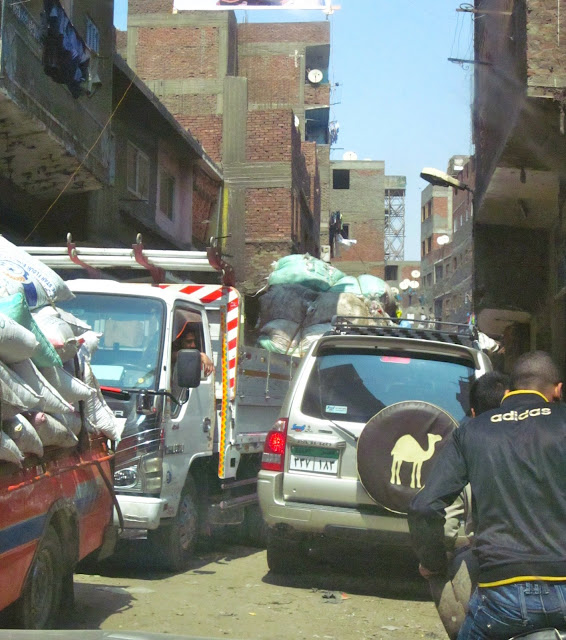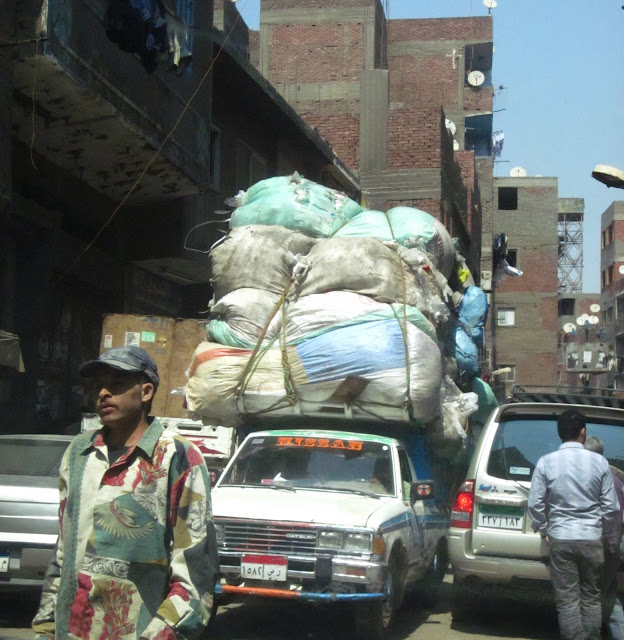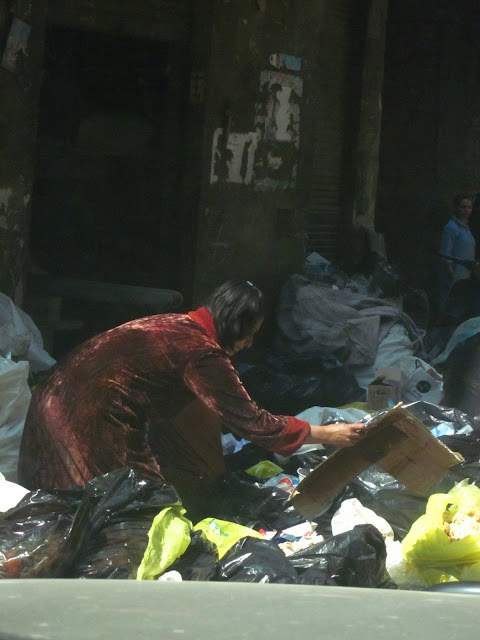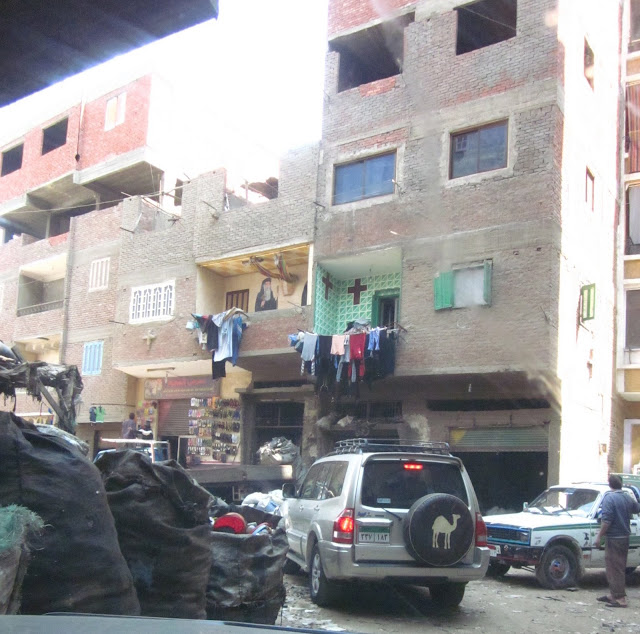The first time I heard about Garbage City was from a friend who was trying to encourage me as I lamented about the trash that we walked through, around, and by as we walked the neighborhoods in Maadi. I told her there was nothing that made me want to reduce my personal waste and recycle as much as possible as seeing the mountains of trash on the street. She told me that she had been to Garbage City (a neighborhood on the outskirts of Cairo) which handles much of the city’s trash and although it looks like a lot of trash, about 80% is recycled. In comparison, the US has recycling rate of only 30%. She said we could go and see mountains of shampoo bottles, piles of glass and mounds of scrap metal as big as my living room. Anything useable is saved or repurposed, such as melting down plastic to make the soles of shoes. They also make handicrafts and sell them (like quilts from material picked from the trash). They are fastidious about salvaging useful materials because their livelihood depends upon it.
The residents are all Coptic Christians. I’m not sure which came first in this symbiotic relationship, the pigs or the Christians, but in Egypt the Christians handle the trash because pigs are a huge asset in disposing of garbage and waste. Muslims won’t have anything to do with pigs because they are considered unclean. In 2009, during the world-wide outbreak of “swine flu” the Egyptian government killed all the pigs that were owned by the Christians in Garbage City. Some say the decision was based on ignorance (since you can’t catch swine flu from pigs), others claim it was intentional religious persecution, but either way, everyone suffered in the months following the pig slaughter as piles of rotting garbage sat with no way to dispose of it.
The members of the community drive around the city and pick up trash — it is brought back here and sorted by the families.

The women and children sit in the piles of trash and sort all day — paper, cardboard, plastic, cans, glass, etc.

Inside every open doorway was more garbage, either sorted or waiting to be sorted. We could barely get down this street. I wanted to go to the store where they sell the handicrafts, but the local guy who was leading us in the front car didn’t know where it was. Next time.
No Regrets.
*If you’re interested in learning more about this community, there’s a documentary called Garbage Dreams that was made in 2009. I haven’t figured out a way to view it yet (not on Netflix), but this is the website: Garbage Dreams
**Update: I found another documentary called Zabaleen (Arabic for “Garbage People”). More info about Garbage City and a promo for the movie can be found here: Zabaleen movie
